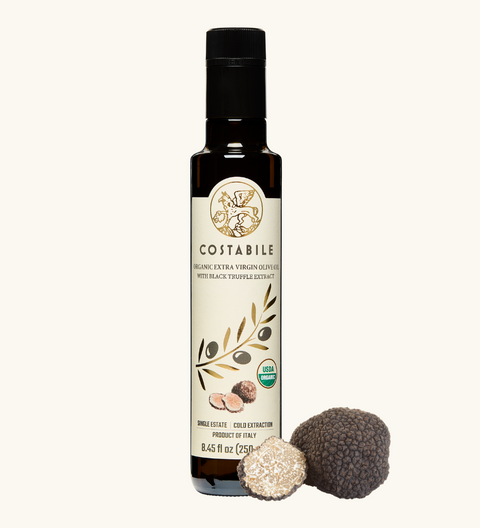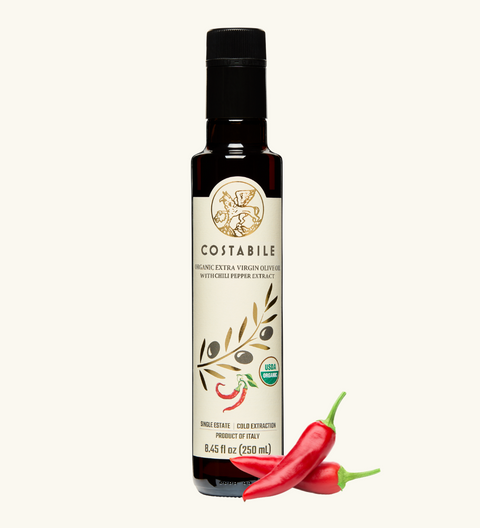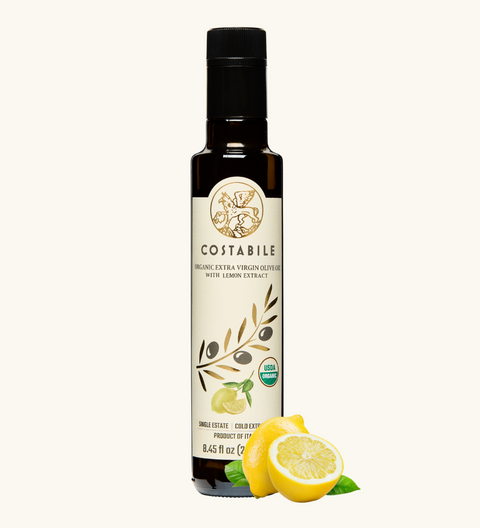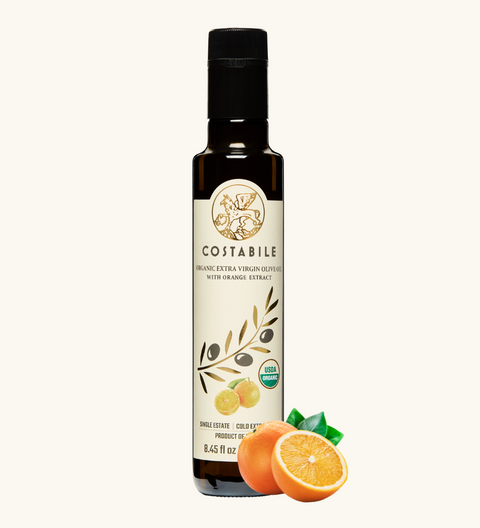Dear olive oil lover, today, we're uncovering the magic behind the term 'cold pressed.' These two words hold great importance as they are associated with a method of extracting oil from olives that preserves their natural goodness and flavor. Join us as we explore what "cold pressed olive oil" really means, including its origins, how it's made, the benefits it offers, any potential downsides and how it impacts the quality of the final product.
Additionally, we'll discuss the difference between cold pressed, first cold pressed and cold extracted olive oil, how to identify true cold pressed oil, and other fascinating tidbits that will keep you engaged throughout this journey.
Origins of Cold Pressed Olive Oil:
The roots of cold pressing can be traced back to ancient civilizations where olive oil held great significance. The Greeks and Romans, in particular, recognized the importance of gentle extraction methods to maintain the oil's purity and reap its health benefits.
'Cold pressed' is an age-old technique of extracting oil from olives without using excessive heat or chemicals. The process involves gently crushing the olives and pressing them to extract the oil, while keeping the temperature below a certain threshold, usually around 80°F (27°C). By doing so, the delicate flavors, delightful aromas, and valuable nutrients of the olive oil are preserved.
If you're really interested in the amazing history and how olive oil has changed over time, we highly recommend visiting the official website of the International Olive Council at www.internationaloliveoil.org. You can download the World Olive Encyclopaedia for free, and it's like a gold mine of information. This incredible resource has everything you need to know about olive oil, where it comes from, and how it has been important to people throughout history. It's a great way to learn all about this fascinating liquid and its role in human civilization.
Cold-Pressed Olive Oil vs. Cold-Extracted Olive Oil:
Let's shed light on the difference between 'cold-pressed' and "cold-extracted" olive oil.
Even though cold-pressed is a commonly used term to indicate high quality olive oils, it is actually outdated. Let’s clarify why.
Interestingly, there is a widespread belief that 'pressed' oil is of high quality, when in reality, this process has been replaced by more technologically advanced methods that offer superior product quality, which is 'cold-extraction'. Today, olive oils obtained through pressing are rarely commercially available mainly for hygiene and food safety concerns.
Traditionally, olives were first crushed in a stone mill. The olive paste resulting from the milling was placed in presses consisting of a concentric axis with mats (originally made of rushes and later of synthetic fibers). Finally, this stack of mats was closed with a metal grid, and pressure was directly applied to it. By exerting this pressure, the olive paste released a liquid mixture of oil and vegetation water.
If the oil was obtained without heating the olive paste, it would be referred to as 'cold pressed' (the paste cannot exceed 81 ªF or 27°C).
Heating the olive paste would decrease its viscosity and this would facilitate oil extraction. However, the oil would also lose some of its aromas and organoleptic properties. That’s why cold-pressed has been associated with high quality olive oils.
The mixture was then collected into tanks where the oil would naturally separate from the water (decantation).
If you are interested to know how olives were pressed in a 19th century mill in Sicily, we recommend you watch this video. Remember to switch on automated subtitles in your own language unless you want to practice some Italian.
This process has been abandoned due to economic, quality, and hygiene reasons. Technological advancements in olive mills and the use of centrifuges have allowed for the production of higher quality oils with superior properties compared to those obtained through pressing.
What is 'first cold pressing' olive oil?
'First cold pressing' refers to oil that is extracted using the process described earlier, where the olive pulp is cold-milled without any prior pressing, and the utensils and equipment used are completely clean or new (press and mats). The olive pulp is pressed only once, and any remaining paste is discarded or pressed again. In the latter case, it can no longer be referred to as 'first pressing.'
Naturally, with the second or third pressing, lower quality oil is obtained because during the time between the first and subsequent pressings, the pulp begins to oxidize, and the vegetation water begins to ferment. Being in contact with the oil, it imparts unpleasant odors and flavors.
What is 'cold extraction' or 'cold extracted' olive oil?
Cold extraction is the prevalent and now considered traditional method of obtaining olive oil. It involves using centrifugal machines to extract the oil. If the oil is extracted at a temperature below 81 ªF or 27°C, it is then called cold-extracted oil. This type of oil guarantees maximum quality in terms of taste and organoleptic properties, preserving all the health benefits of olive oil.
To obtain a higher yield of oil from olives, some producers increase the temperature beyond the previously mentioned levels. This results in a higher volume of olive oil available for sale but with a consequent loss of nutritional and sensory properties.
All Costabile olive oils are cold-extracted from early harvest olives, typically picked during the months of October and November. These olives are selected at a stage when they are not overly ripe, ensuring the highest quality oil is produced. These olives are washed, crushed into a paste, and then pressed in a hydraulic press at a temperature below 81 ªF or 27°C. This mechanical procedure separates the oil from the solid components, such as the pulp and pits, while ensuring that minimal heat is generated. The result? An oil that maintains its integrity and captures the essence of the olives.
Many producers still use the term 'cold pressed' even though the oil is now primarily extracted from olives through mechanical milling rather than pressing. These companies should actually use the term 'cold extracted' instead. However, it is generally accepted that whenever we see a 'cold-pressed' label, the producer is most likely referring to a 'cold-extracted' oil.'
Benefits of Cold Extracted or Cold Pressed Olive Oil:
Ah, the wonders of cold pressed olive oil! Let's explore its benefits:
- Delectable Flavor: Cold pressing olive oils allows the natural flavors and aromas of the olives to shine through, resulting in a rich and well-rounded taste.
- Nutritional Goodness: The gentle extraction method ensures that the beneficial nutrients, antioxidants, and vitamins present in olives are retained in the oil.
- Benefits of olive oil for health: Cold pressed olive oil is renowned for its potential anti-inflammatory and heart-healthy qualities, making it an excellent addition to your diet.
- Assurance of Quality: Cold pressing and cold extraction are often associated with high-quality extra virgin olive oils. When you see the "cold pressed" or “cold extracted” label, you can be confident that the oil was made with utmost care to preserve the olives' natural characteristics.
Potential Drawbacks of Cold Extracted or Cold Pressed Olive Oil:
While cold pressing olive oil or, as we just learned, cold extracting is generally considered superior, it's important to acknowledge some potential drawbacks. These may include lower oil yields compared to other methods, increased production costs, and longer processing times. However, these trade-offs are well worth it when you consider the superior quality and flavor that cold pressing provides.
Identifying Cold Pressed or Cold Extracted Olive Oil:
It should be clear by now that the gentle extraction process of cold extracted olive oils helps retain the freshness, low acidity, and superior taste of the oil. So, when you're shopping for olive oil, choosing cold-extracted varieties ensures that you're getting a premium product. To ensure you're purchasing genuine cold extracted olive oil, keep an eye out for specific labels and certifications like 'Cold Pressed,' 'First Cold Pressed,' or 'Cold Extracted.'

Conclusion:
Understanding the meaning of ‘cold pressed’ and ‘cold extracted’ in olive oil helps you make informed choices and find the right olive oil for you. Opting for cold extracted varieties ensures a delightful culinary experience and allows you to enjoy the health benefits associated with this esteemed Mediterranean treasure.
Additional sources of information:
When it comes to understanding the meaning of cold pressed olive oil, there are several reputable sources you can consult for accurate and reliable information. Here are some of the most relevant sources:
- International Olive Council (IOC): The IOC is an intergovernmental organization dedicated to the olive industry. They provide information on olive oil production, quality standards, and terminology, including cold pressing.
- Olive Oil Times: Olive Oil Times is an online publication focused on news and information about the olive oil industry. They cover topics related to production methods, quality, and the meaning of cold pressed olive oil.
- Extra Virgin Alliance: The Extra Virgin Alliance is an organization that promotes transparency and integrity in the olive oil industry. They provide educational resources on olive oil production methods, including cold pressing.
- European Union (EU) Regulations: The EU has specific regulations and standards in place for the labeling and production of olive oil, including requirements related to cold pressing. Referring to EU regulations can provide insights into the meaning and regulations surrounding cold pressed olive oil.












Comments (2)
This in-depth analysis of the history of cold-pressed olive oil was fascinating to read. It is evident why this method is popular based on the benefits you mentioned, which range from higher nutritious content to better taste. After reading your article, individuals will start using cold-pressed olive oil for their cooking needs because of your motivating explanation.
Thank you. I am a second generation Italian who just returned from my first two weeks in Italy. I was home. I get sick in (allergies) eating in US all the time. In Italy I was safe and thoroughly enjoyed eating. My grandmother was from the Pegulia area.